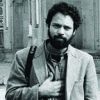Towards a unified and tolerant India
We live in an age of interdependence where no man is an island, no island is an island, no continent is an island. Followers of all religions must be willing to face the basic questions which surround present-day society and find answers. How are the differences between them to be resolved, both in theory and in practice We communicate across the globe at the speed of light and travel at the speed of sound. For a spiritually inclined person, the challenge facing religious and spiritual leaders is daunting but not something impossible. They must contemplate, with hearts filled with the spirit of compassion and a desire for truth, the plight of humanity, and to ask themselves whether they cannot, in all humility before their Almighty Creator, submerge their theological differences in a great spirit of mutual forbearance that will enable them to work together for the advancement of human understanding and peace; for unity and wellbeing of all.
What is happening to our planet, including India, I believe, is way beyond what has been called a “paradigm shift”. It is whole-system transition, a shift in reality itself.
Whereas paradigm shift could be compared to turning a kaleidoscope and watching the pieces assume a new pattern and relationship to each other, whole-system transition would call for the addition of entirely new pieces into the whole. Indeed, “the human race, as a distinct organic unit, has passed through evolutionary stages analogous to the stages of infancy and childhood in the lives of its individual members, and is now in the culminating period of its turbulent adolescence approaching its long-awaited coming of age”.
Because it is concerned with the ennobling of character and the harmonising of relationships, religion or dharma Baha’is believe has served throughout history as the ultimate authority in giving meaning to life. Every unprejudiced observer will agree that in every age, it has cultivated the good, reproved the wrong and held up, to the gaze of all those willing to see, a vision of potentialities as yet unrealised. From its counsels the rational soul has derived encouragement in overcoming limits imposed by the world and in fulfilling itself. As the name implies, religion or dharma has simultaneously been the chief force binding diverse peoples together in ever larger and more complex societies through which the individual capacities thus released can find expression. As Arnold Toynbee points out religion is the “faculty of human nature.”
The perversion of this faculty today has contributed to much of the confusion in society and the conflicts in and between individuals. But neither can any fair-minded observer discount the preponderating influence exerted by religion on the vital expressions of civilisation. The turmoil of the age has forced one scholar, Wilfred Cantwell Smith, to write: “It is no longer possible to understand each ‘religion’ as a stable system.”
The universal ethic, known as the Golden Rule, is a good starting point for building bridges out of the walls that have separated religious and spiritual communities.
Today, the majority of men and women have lost those spiritual insights which enable them to instinctively understand the processes that are sweeping away barriers and toppling mighty pillars for new conceptions of social organisation on the planet. The change in world society is characterised by a phenomenal speed. A feature of this change is a suddenness or precipitancy that appears to be the consequence of some mysterious rampant force.
The author is a national trustee, Lotus Temple & Baha’i Community of India;
He can be contacted at: ak9merchant@gmail.com and akmerchant@hotmail.com

